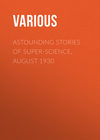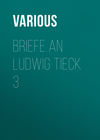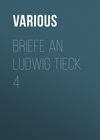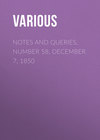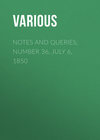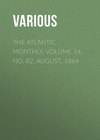Buch lesen: «Astounding Stories of Super-Science, August 1930», Seite 14
Bell snarled wordlessly, but if one had noticed his eyes they would have been seen to be curiously cool and alert and waiting. The Master leaned forward, and for once spoke seriously, almost reverently.
"There shall be a forward step, Senores, in the race of men. Do you know the difference between the brain of a man and that of an anthropoid ape? It consists only of a filmy layer of cortex, a film of gray nerve cells which the ape has not. And that little layer creates the difference between ape and man. And I have discovered more. My little medicine acts upon that film. Administered in the tiny quantities I have given to my slaves, it has no perceptible effect. It is merely a compound of a vegetable substance and a synthetic organic base. It is not excreted from the body. Like lead, it remains always in solution in the blood. But in or out of the blood it changes, always, to the substance which causes murder madness. Fresh or changed, my little medicine acts upon the brain."
_____________________________
He smiled brightly upon them.
"But though in tiny quantities it has but little effect, in larger quantities – when fresh it makes the functioning of the gray cells of the human brain as far superior to the unmedicated gray cells, as those human gray cells are to the white cells of the ape! That is what I have to offer to the human race! Intelligence for every man, which shall be as the genius of the past!"
He laughed softly.
"Think, Senores! Compare the estate of men with the estate of apes! Compare the civilization which will arise upon the earth when men's brains are as far above their present level as the present level is above the anthropoid! The upward steps of the human race under my rule will parallel, will surpass the advance from the brutish caveman to intellectual genius. But I have seen, Senores, the one danger in my offering."
There was silence. Jamison shook his head despairingly. The Master could not see him. He formed the word with his lips.
"Crazy!"
_____________________________
But Bell said coldly:
"Go on."
"I must rule," said The Master soberly. "It is essential. If my little secret were known, intelligences would be magnified, but under many flags and with many aims. Scientists, with genius beside which Newton's pales, would seek out deadly weapons for war. The world would destroy itself of its own genius. But under my rule – "
"Men go mad," said Bell coldly.
The Master smiled reproachfully.
"Ah, you are trying to make me angry, so that I will betray something! You are clever, Senor Bell. With my little medicine, in such quantities as I would administer it to you…"
"You describe it," said Bell harshly and dogmatically, "as a brain stimulant. But it drives men mad."
"To be sure," said The Master mildly. "It does. It is not excreted from the body save very, very slowly. But it changes in the blood stream. As – let us say – sugar changes into alcohol in digestion. The end-product of my little medicine is a poison which attacks the brain. But the slightest bit of unchanged medicine is an antidote. It is" – he smiled amiably – "it is as if sugar in the body changed to alcohol, and alcohol was a poison, but sugar – unchanged – was an antidote. That is it exactly. You see that I have taken my little medicine for years, and it has not harmed me."
"Which," said Bell – and somehow his manner made utter silence fall so that each word fell separately into a vast stillness – "which, thank God, is the one thing that wins finally, for me!"
_____________________________
He stood up and laughed. Quite a genuine laugh.
"Paula," he said comfortably, "get on the plane. In the cabin. Jamison and I are going to strip The Master."
Paula stared. The Master looked at him blankly. Jamison frowned bewilderedly, but stood up grimly to obey.
"But Senor," said The Master in gentle dignity, "merely to humiliate me – "
"Not for that," said Bell. He laughed again. "But all the time I've been hearing about the stuff, I've noticed that nobody thought of it as a drug. It was a poison. People were poisoned. They did not become addicts. But you – you are the only addict to your drug."
He turned to Jamison, his eyes gleaming.
"Jamison," he said softly, "did you ever know of a drug addict who could bear to think of ever being without a supply of his drug —right on his person?"
Jamison literally jumped.
"By God! No!"
The Master was quick. He was swarming up the plane-wing tip before Jamison reached him, and he kicked frenziedly when Jamison plucked him off. But then it was wholly, entirely, utterly horrible that the little white haired man, whose face and manner had seemed so cherubic and so bland, should shriek in so complete a blind panic as they forced his fingers open and took a fountain pen away from him.
"This is it," said Bell in a deep satisfaction. "This is his point of weakness."
_____________________________
The Master was ghastly to look at, now. Jamison held him gently enough, considering everything, but The Master looked at that fountain pen as one might look at Paradise.
"I – I swear," he gasped. "I – swear I will give you the formula!"
"You might lie," said Jamison grimly.
"I swear it!" panted The Master in agony. "It – If the formula is known it – can be duplicated! It – the excretion can be hastened! It can all be forced from the body! Simply! So simply! If only you know! I will tell you how it is done! The medicine is the cacodylate of – "
Bell was leaning forward, now, like a runner breasting the tape at the end of a long and exhausting race.
"I'll trade," he said softly. "Half the contents of the pen for the formula. The other half we'll need for analysis. Half the stuff in the pen for the formula for freeing your slaves!"
The Master sobbed.
"A – a pencil!" he gasped. "I swear – "
Jamison gave him a pencil and a notebook. He wrote, his hands shaking. Jamison read inscrutably.
"It doesn't mean anything to me," he said soberly, "but you can read it. It's legible."
Bell smiled faintly. With steady finger he took his own fountain pen from his pocket. He emptied it of ink, and put a scrupulous half of a milky liquid from The Master's pen into it. He passed it over.
"Your medicine," said Bell quietly, "may taste somewhat of ink, but it will not be poisonous. Now, what do we do with you? I give you your choice. If we take you with us, you will be held very secretly as a prisoner until the truth of the information you have given us can be proven. And if your slaves have all been freed, then I suppose you will be tried…"
_____________________________
The Master was drawn and haggard. He looked very, very old and beaten.
"I – I would prefer," he said dully, "that you did not tell where I am, and that you go away and leave me here. I – I may have some subjects who will search for me, and – they may discover me here… But I am beaten, Senor. You know that you have won."
Bell swung up on the wing of the plane. He explored about in the cabin. He came back.
"There are emergency supplies," he said coldly. "We will leave them with you, with such things as may be useful to allow you to hope as long as possible. I do not think you will ever be found here."
"I – prefer it, Senor," said The Master dully. "I – I will catch fish…"
Jamison helped put the packages ashore. The Master shivered. Bell stripped off his coat and put it on top of the heap of packages. The Master did not stir. Bell laid a revolver on top of his coat. He went out to the plane and started the motors. The Master watched apathetically as the big seaplane pulled clumsily out of the little cove. The rumble of the engines became a mighty roar. It started forward with a rush, skimmed the water for two hundred yards or so, and suddenly lifted clear to go floating away through the air toward the north.
_____________________________
Paula was the only one who looked back.
"He's crying," she said uncomfortably.
"It isn't fear," said Bell quietly. "It's grief at the loss of his ambition. It may not seem so to you two, but I believe he meant all that stuff he told me. He was probably really aiming, in his own way, for an improved world for men to live in."
The plane roared on. Presently Bell said shortly:
"That stuff he has won't last indefinitely. I'm glad I left him that revolver."
Jamison stirred suddenly. He dug down in his pocket and fished out a cigar.
"Since I feel that I may live long enough to finish smoking this," he observed dryly, "I think I'll light it. I haven't felt that I had twenty minutes of life ahead of me for a long time, now. A sense of economy made me smoke cigarettes. It wouldn't be so much waste if you left half a cigarette behind you when you were killed."
_____________________________
The tight little cabin began to reek of the tobacco. Paula pressed close to Bell.
"But – Charles," she asked hopefully, "is – is it really all right, now?"
"I think so," said Bell, frowning. "Our job's over, anyhow. We go up the Chilean coast and find that navy boat. We turn our stuff over to them. They'll take over the task of seeing that every doctor, everywhere in South America, knows how to get The Master's poison out of the system of anybody who's affected. Some of them won't be reached, but most of them will. I looked at his formula. Standard drugs, all of them. There won't be any trouble getting the news spread. The Master's slaves will nearly go crazy with joy. And," he added grimly, "I'm going to see to it that the Rio police take back what they said about us. I think we'll have enough pull to demand that much!"
He was silent for a moment or so, thinking.
"I do think, Jamison," he said presently, "we did a pretty good job."
Jamison grunted.
"If – if it's really over," said Paula hopefully, "Charles – "
"What?"
"You – will be able to think about me sometimes," asked Paula wistfully, "instead of about The Master always?"
Bell stared down at her.
"Good Lord!" he groaned. "I have been a brute, Paula! But I've been loving you – " He stopped, and then said with the elaborate politeness and something of the customary idiotic air of a man making such an announcement. "I say, Jamison, did you know Paula and I were to be married?"
Jamison snorted. Then he said placidly:
"No. Of course not. I never dreamed of such a thing. When did this remarkably original idea occur to you?"
He puffed a huge cloud of smoke from his cigar. It was an unusually vile cigar. Bell scowled at him helplessly for a moment and then said wrathfully:
"Oh, go to hell!"
And he bent over and kissed Paula.
(The End.)
The Flying City
By H. Thompson Rich
From Space came Cor's disc-city of Vada – its mighty, age-old engines weakening – its horde of dwarfs hungry for the Earth!
In the burning solitude of the great Arizona desert, some two miles south of Ajo, a young scientist was about to perform an experiment that might have far-reaching results for humanity.
The scientist was Gordon Kendrick – a tall, tanned, robust chap who looked more like a prospector in search of gold than a professor of physics from the State University of Tucson.
Indeed, he was in a way, a prospector, since it was gold he sought – some practical method of tapping the vast radio-energetic treasure of the sun – and it was an apparatus designed to accomplish just this that he was about to test.
The primary unit of the mechanism comprised a spheroidal vacuum-tube measuring a little over a foot across its long axis, mounted in a steel bracket that held it horizontal with the ground. Down through its short axis ran a shaft on which was centered a light cross of aluminum wire, carrying four vanes of mica, one face of each coated with lampblack. A flexible cable led from the bottom of this shaft to the base of the bracket, where it was geared to a small electric motor driven by two dry cells. A rheostat-switch for delivering and controlling the current was mounted nearby.
At the wide arc of the egg-shaped tube was a concave platinum cathode, at the narrow arc a nib of some sort, ending in a socket. From this socket, two heavy insulated wires extended sixty feet or so across the sand to the secondary unit of the mechanism, which was roughly a series of resistance coils, resembling those in an ordinary electric heater.
_____________________________
As Kendrick prepared to test this delicate apparatus that represented so much of his time and thought, held so much of his hope locked up in it, a turmoil was in his heart, though his brown face was calm.
If his theories were right, that revolving cross would tap and draw into its vanes radio-energetic waves of force, much as the whirling armature of a dynamo draws into its coils electro-magnetic waves of force. For the blackened sides of the vanes, absorbing more radiation than the bright sides, would cause the molecules to rebound from the warmer surfaces with greater velocity, setting up an alternate pressure and bringing the rays to a focus on the cathode, where they would be reflected to the nib as waves of heatricity, to use the word he had coined.
Those were Kendrick's theories, and now he moved to put them to the supreme test. Switching on the current, he set the motor going. In response, the cross began to revolve, slowly at first – then faster, faster, as he opened the rheostat wider.
Eyes fixed on his resistance coils, he gave a sudden cry of triumph. Yes, there was no doubt about it! They were growing red, glowing brightly, whitely, above the intense desert sunlight.
Here was a means of convening solar radiation into heat, then, that offered tremendous commercial possibilities!
But even as he exulted, there came a blinding flash – and the overtaxed coils burst into flame.
_____________________________
Shielding his eyes from the glare, he reached for the rheostat, shut off the current, rushed to his secondary unit – where he beheld an amazing sight. Not only had this part of the apparatus completely disintegrated, but the sand of the desert floor under it as well. On the spot quivered a miniature lake of molten glass!
As Kendrick stood ruefully beside that fiery pool, meditating on the spectacular but not altogether gratifying results of his experiment, a peculiar low humming sound reached his ears. Rushing back to his primary unit, with the thought that perhaps by some chance he had not fully closed the rheostat, he looked at the cross. But no, the vanes were still.
The humming increased, however – grew into a vibration that made his eardrums ache.
Puzzled, he looked around. What on earth could it be? Had his unruly experiment called into play some tremendous, unsuspected force of the universe. Was he to bring the world to ruin, as a result of his blind groping after this new giant of power?
Such predictions had often been made by the ignorant, to be dismissed by scientists as the veriest nonsense. But was there some truth in the universal fear, after all? Was he to be the Prometheus who stole fire from Olympus, the Samson who toppled down the temple?
Chilled, dizzied with the pain of the ever-increasing vibration, he gritted his teeth, awaiting he knew not what.
Then it came – a spectacle so staggering that he went rigid with awe as he regarded it, all power of motion utterly numbed for the moment. The vibration ceased. The thing appeared.
It was a city – a city in the air – a flying city!
_____________________________
As Kendrick stood staring at this phenomenon, he could scarcely credit his senses.
Had the magic carpet of Bagdad suddenly materialized before him, he would not have been more astounded. And indeed, it was in a way a magic carpet – a great disclike affair, several miles in diameter, its myriad towers and spires glinting like gold under the noonday sun, while its vast shadow fell athwart the desert like the pall of an eclipse.
The lower portion, he noted, was in the main flat, though a number of wartish protuberances jutted down from it, ejecting a pale violet emanation. Whatever this was it seemed to have the effect of holding the thing motionless in the air, for it hovered there quite easily, a hundred yards or so above the ground.
But what was it? Where was it from? What had brought it?
Those were the questions he wanted answered; and they were to be, sooner than he knew.
As he stood there speculating, a device like a trap-door opened in the base of the disc, and creatures resembling human beings began descending. Began floating down, rather.
Whereupon Kendrick did what any sensible man would have done, under similar circumstances. He reacted into motion. In short, he ran.
_____________________________
Glancing back over his shoulder after a minute or two, however, he drew up sheepishly. Of that strange apparition and those who had descended from it there was not a trace, not a shadow!
But the peculiar humming had recommenced, he realized in the next breath – and at the same instant he felt himself seized by invisible hands.
There was a struggle, but it was brief and futile. When it was over his captors became visible once more. They were singular little beings about four feet tall, with strange, wise, leathery faces, their heads grotesquely bald.
The humming had ceased again. The disc, too, was once more visible.
What happened next was something even more astounding, if there could be any further degrees of wonder possible for the utterly baffled young scientist. He felt himself lifted up, leaving the desert floor, whirling away toward that incredible phenomenon hovering there.
Another moment or two and he had been borne up through its trap-door opening, was standing in a dark space bounded by solid metal walls. Then he was thrust into a cylinder with several of his tiny guards, shot swiftly upward.
_____________________________
A door opened as they came to rest, and he was led out into a vast court of gleaming amber crystal. Something like a taxi slid up, with irridescent planes, and he was bundled into it, whirled away again.
Down broad, gleaming avenues they passed, where similar traffic flowed densely, but under marvelous control. Towering skyscrapers loomed to right and left. Tier on tier of upper and lower boulevards revealed themselves, all crowded with automotive and pedestrian activity.
At length a stupendous concourse was reached. Thousands of these taxis and similar vehicles were parked along its broad flanks, while literal swarms of diminutive individuals circulated to and fro.
Assisted from the vehicle that had brought him to this obvious center of the disc's activities. Kendrick was led into a monumental structure of jade-green stone that towered a full hundred, stories above the street level. There he was escorted into another of those projectilelike elevators, shot up, up – till at length it came to rest. The door opened and he was led out into a small lobby of the same amber crystal he had observed before.
By now his guards had diminished to two, but he no longer made any effort to escape. Wherever this amazing adventure might lead, he was resolved to follow it through.
One of the guards had advanced to a jewelled door and was pressing a button. In response, the door opened. A golden-robed, regal creature stood there.
_____________________________
Though dwarfed to four feet, like his fellow, he was obviously their mental superior to a prodigious degree. Not only was his symmetrical bald head of large brain content, but the finely-cut features of his parchment face bore the unmistakable stamp of a powerful intellect.
"Ao-chaa!" commanded this evident monarch of the disc, addressing the guards.
They bowed and departed, abruptly.
"My dear Kendrick!" the regal personage now said, in thin, precise English. "It is indeed a pleasure to welcome you to my humble quarters. Pray enter and make yourself comfortable."
Whereupon he ushered him into a dazzling apartment that was one vast mosaic of precious gems, indicated a richly carved chair, into which the young scientist dropped wonderingly.
"Now then, Professor," continued the mighty little dwarf, when he was seated in a chair even more sumptuous, "suppose we have a friendly little discussion. I have been much interested in your experiments on heat radiation. What you demonstrated this morning, in particular, was most absorbing. You have hit upon a rather profound scientific principle, yes?"
"Possibly," Kendrick admitted, quite conscious that he was being patronized.
"Oh, don't be modest, my dear fellow!" smiled the dwarf. "I am the last one to belittle your achievement. Indeed, it is because of it that I have invited you here to-day. Permit me to introduce myself, and to make clear one or two possibly perplexing matters. Then I am sure we shall have a most agreeable chat."
_____________________________
His name was Cor, he said, and he was in truth the monarch of this strange realm. His people had come from the one-time planet of Vada, far distant in the universe. A thousand years ago, this planet had been doomed by the approach of an alien star. Their great scientist, Ravv, had met the emergency by inventing the disc, into whose construction they had poured all their resources. The pick of their populace had been salvaged on this giant life-raft. The rest had perished when that destroying star had crashed down on the doomed Vada.
Since then these survivors and their descendants had been voyaging through space on their marvelous disc. For hundreds of years they had given no thought to the future, content to drift on and on in the interstellar void, breathing an atmosphere produced artificially. But at length the inevitable had happened. This superb piece of mechanism devised by their super-genius, Ravv, was beginning to show signs of wear. Some of its mighty engines were nearing the exhaustion point. Either they must soon find a planet comparable with the one they had once known, where they could pause and rehabilitate their machinery, or they must disintegrate and pass into oblivion.
Faced with that crisis, Cor had long been seeking such a planet. He had found it, at last, in the earth – and had resolved that this was where they were going to alight and transplant the civilization of ancient Vada, pending such time as they could take to space again.
_____________________________
For some months now they had been hovering over various portions of the earth, studying its geography and its peoples, with the result that they had concluded the United States offered the most logical point for launching the attack. Once this country was subdued, they were in possession of the richest and most advanced section of the planet. The conquest of the rest of it could await their leisure.
With such an invasion in view, their scientists had mastered the language of the country. This had been accomplished very easily, since in addition to their power of mingling with the populace in an invisible form, they had the principles of radio developed to a high degree and were able to tune in on any station they wanted.
Kendrick sat there, stunned, as Cor followed his astounding revelation of their origin with this calm plan for the conquest of America, of the world. Why, of all people on earth, had he alone been singled out for this disclosure?
He asked the question now.
"My dear Professor, can't you really guess?" replied Cor, with that leathery smile. "Hasn't it dawned that you were a little too near our own field with that machine of yours? A trifle more research, a slightly different application – and you would have become a dangerous enemy."
"You – you mean – ?"
"I mean there isn't a great deal of difference between the experiments you have been making and those our great Ravv once made. For instance, had you broadcast your heatricity, as you call it, instead of trying to transmit it on wires – well, picture a receiving apparatus in each home of the land, like your commercial radio sets. You would have become a billionaire, don't you see?"
_____________________________
Kendrick saw indeed. It was simple, so simple! Fool – why hadn't he thought of it?
"But your invention will never make you wealthy now, my dear fellow," Cor went on, tauntingly. "You will be our guest, here, until we have taken over your interesting country. After that, if there is any need for the broadcasting of heat, we will furnish it ourselves. We have those facilities, among others, fully developed. Would you care to see our plant?"
Kendrick naturally admitted that he would, so the dwarf led him through a rear door and up a winding flight of stairs. They emerged presently into a great laboratory housed in the glass-roofed pinnacle of the tower.
There he beheld a sight that left him breathless. Never before had he seen such an assemblage of scientific apparatus. Its vastness and strangeness were fairly overpowering, even to a man as well versed in physio-chemical paraphernalia as he was.
Before his eyes could take in a tenth part of the spectacle, Cor had led him to the left wall.
"There," he said, "you will observe a development of your heat generator."
Kendrick looked – to see a long bank of large vacuum-tubes, each about three feet high and a foot wide, connected by a central shaft that caused series of little vanes in each of them to revolve at lightning speed.
Around the apparatus moved numerous small attendants, oiling, wiping, adjusting its many delicate parts.
"Well, what do you think now?" asked Cor.
Kendrick made no reply, though he was thinking plenty.
"You see, it is your invention, my dear Professor," the dwarf went on in his taunting voice, "only anteceded by a thousand years – and rather more perfected, you must admit."
_____________________________
He walked now to the center of the laboratory, where stood a huge dial of white crystal, ranked with many levers and switches, all capped with the same material.
"Behold!" he said, throwing over one.
Instantly there came again that peculiar low humming that had so puzzled him a few minutes before – and the entire room, its engines, its attendants, Cor himself, leapt into invisibility. Only Kendrick remained, facing the faintly visible crystal dial.
Then he saw a switch move, as though automatically. But no, for the dwarf's hand was on it now. Visibility had returned. The vibration ceased.
"That is the central control," said Cor. "Our city and all its inhabitants become invisible when that switch is thrown. Only the dial remains, for the guidance of the operator, and even that cannot be seen at a distance of more than fifty feet. But now behold!"
He raised his hand, touched a watch-like device strapped to his wrist – and was instantly invisible. But the laboratory and every machine and person in it remained in plain view. Nor was there any vibration now.
_____________________________
The next moment, having touched that curious little device again, Cor reappeared.
"That is the local control," he said. "Every one of our inhabitants, except those under discipline, has one of these little mechanisms. It enables us to make ourselves invisible at will. A convenience at times, you must admit."
"Decidedly," Kendrick agreed. "And the principle?"
"Quite simple. One of those, in fact, that lies behind your researches. Doubtless you would have hit upon it yourself in time. Your own scientist, Faraday, you may recall, held the opinion that the various forms under which the forces of matter manifest themselves have a common origin. We of the disc, thanks to our great Ravv, have found that common origin."
It was the origin of matter itself, Cor said, which lay in the ether of interstellar space – energy, raw, cosmic – vibrations, rays.
By harnessing and controlling these various rays, his people had been able to accomplish their seeming miracles – miracles that the people of earth, too, were beginning to achieve – as in electricity, for instance, and its further application, radio.
But the people of Vada had long since mastered such simple rays, and now, in possession of vastly more powerful ones, had the elemental forces of the universe at their disposal.
_____________________________
The disc was propelled through space by short rays of tremendously high frequency, up above the ultra-violet. The same rays, directed downward instead of outward, enabled them to overcome the pull of gravity when in a planet's influence, as at present. And the escalator rays, by which they could proceed to and from the disc, were also of high frequency, as were their invisibility rays.
"But you, Professor, are more interested in low frequency rays, the long ones down below infra-red," continued Cor. "You have seen our development of the heat-dynamo principle. It utilizes, I might add, not only solar radiation but that of the stars as well. There being a billion and a half of these in the universe, many of them a thousand times or more as large as your own sun, we naturally have quite an efficient little heating plant here. It provides us with our weapon of warfare, as well as keeping us warm. Permit me to demonstrate."
He led the way to a gleaming circle of glass like an inverted telescope, about a yard in diameter, mounted in the floor.
"Look!" said the dwarf.
Kendrick did so – and there, spread below him, lay the floor of the desert. His camp, his apparatus, were just as he had left them.
Cor now moved toward the dial.
"Behold!" he said, pulling a lever.
Instantly the scene below was an inferno. Stricken by a blast of stupendous heat, the whole area went molten, lay quivering like a lake of lava in the crater of an active volcano.
"Suppose, my dear Professor," smiled the dwarf, strolling back from the dial, "just suppose, for instance, that instead of the lonely camp of an obscure scientist, your proud city of New York had been below there!"
_____________________________
Kendrick shuddered.
Well he knew now the terrible power, the appalling menace of this strange invader.
"I would prefer not to make such a supposition," he said, quietly, with a last thoughtful glance at that witches' caldron below.
"Then let us think of pleasanter things. You are my guest of honor, sir – America's foremost scientist, though she may never realize it," with a piping chuckle. "To-night there will be a great banquet in your honor. Meanwhile, suppose I show you to your quarters."
